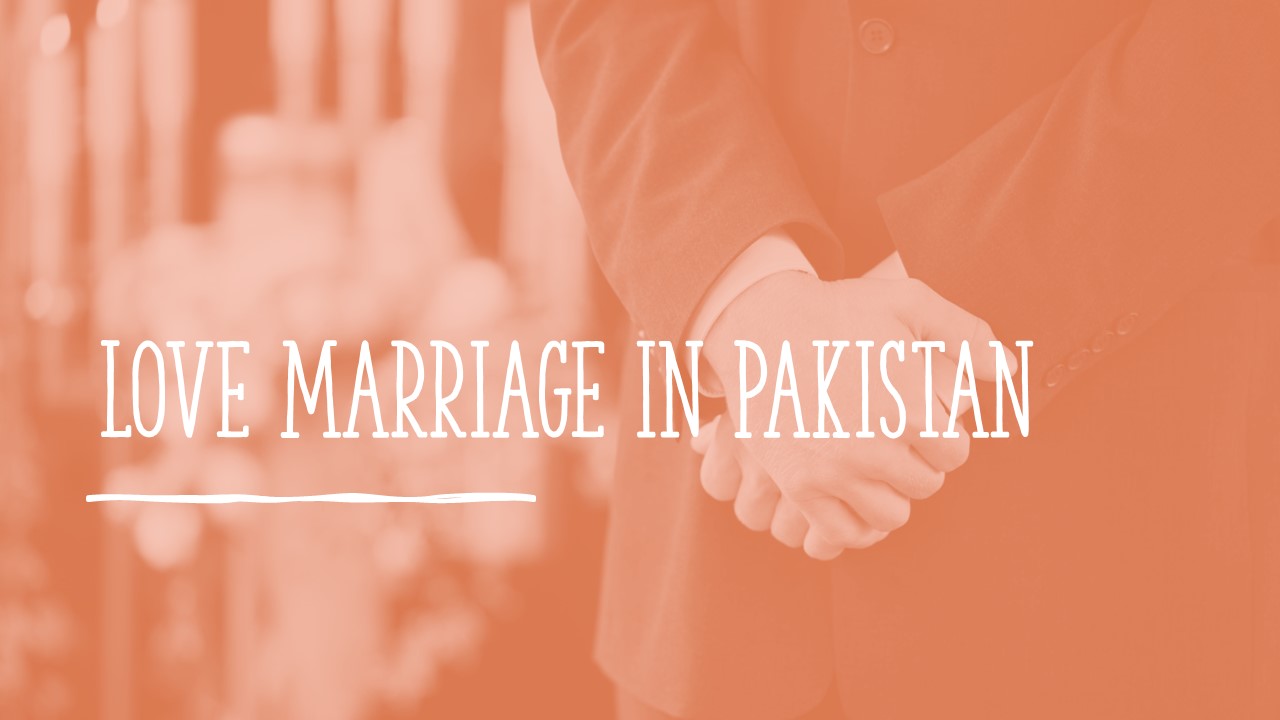Through the centuries, traditional families and marriage in Pakistan operated through arranged, endogamous marriages. Parents or other senior family members arranged the marriages of their children. For pragmatic reasons, young men and women married whomever their families selected for them. Romantic love or personal liking were of lower importance.
Many cultural norms, traditions, and practices have recently changed in Pakistani culture. Modern Pakistanis’ attitudes have shifted in recent years toward more accepting cultural views of love marriages.
Progressive Parents, Happy Children
New cultural norms in contemporary Pakistan are more tolerant and accepting of marriages in which men and women initiate their marital relationships. Some parents are pleased that their children take the initiative to choose life partners on their own. They recognize that their children are adults who know themselves and their family’s opinions well enough to make an informed decision about marriage. Parents may think that “if the decision is theirs, they cannot blame me if, God forbid, something goes wrong.”
These parents believe that their grown children should make their own decisions on matters important to their future lives. And they should deal with the consequences of these decisions. This way of thinking embodies wise parental attitudes toward this matter. Such new cultural perspectives have more frequently come to mind in recent years. It is a rapidly growing part of Pakistani culture that accepts and even encourages children to find their own relationships (Ahmed, 2021).
Conservative Parents, Unhappy Children
However, not all categories of Pakistani society welcome this new cultural trend. Some meet these progressive innovations with resistance. This part of Pakistani culture is more conservative in their view and, therefore, not willing to accept this open-minded approach.
Such parents may feel disappointed because they believe their parents made decisions for them, and now it is their turn to make decisions for their children. These parents are fighting for a chance to decide in the same way that children are exercising their right to choose. It is difficult for them to recognize that their boys and girls try to make their own choices.
Young men and women are increasingly pressuring their parents to listen to them. That is what parents may be reluctant to do. It is difficult for parents to make compromises for their children’s happiness. It is even harder for them to admit that whatever they had expected to happen would not occur. The parents are not content with the decisions being made (Nazir, 2021).
Resistance of Pakistani Parents to Children’s Wish for Love Marriage
A common conservative reaction to a wish that a son or a girl have a love marriage is to condemn, resist, and reject it. Consequences can be negative for children. Violent reactions within the household can also happen.
Some families can be explicitly outspoken in their resistance to the freedom of marital choice. These parents are unable to comprehend, support, or accept the child’s decision. They tell their adult children up front that they will not marry anyone who is not chosen by their parents. They say that they must learn to live with that parental decision, thus asserting their right to an arranged marriage.
What if Boys and Girls Decide to Disregard Their Parents’ Wishes?
When boys and girls choose to disregard their parents’ wishes, some families can go to extremes of violence. Here is one example of a case that occurred in 2012. “Pakistani newspapers routinely carry articles about couples who faced violence as a result of marrying without their families’ consent. In one recent case, The Express Tribune reported last month that a couple, Almas Khan and Shamim Akhtar, were killed in Chakwal, Punjab, over the weekend of Id al-Fitr, the holiday ending Ramadan” (Ladly, 2012).
In Pakistani culture, families can carry out such actions, pretending as if their child has dishonored them. In such cases, both the man and the woman are frequently murdered since they are both deemed to have disobeyed the word of the parents, and ultimately God (Ahmed, 2021).
In Pakistan’s patriarchal society, adults assume that they know their children better and can make these decisions for them. It’s tough for them to accept a child’s decision and regard them as adults in charge of their own lives when they come to them with one.
What if Pakistani Parents Agreed to Their Children’s Desire for Love Marriage?
The parents who have agreed to their child’s wishes are still not truly happy with such a decision. On the surface, family members may accept the child’s own decision, but internally, in their implicit minds, they can plot ways to end the relationship or marriage. Thus, many challenges remain for the new progressive movements in marriage arrangements.
Thus, some Pakistanis remain traditional and resistant to these new cultural tendencies in family, marriage, and interpersonal interactions. They are less willing to accept these open-minded cultural attitudes. They disagree with these progressive changes.
